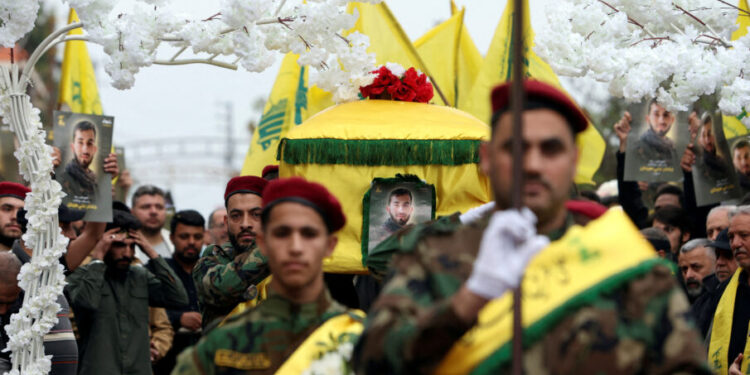Israel is carrying out an unprecedented wave of deadly strikes in Syria targeting cargo trucks, infrastructure and people involved in Iran’s weapons lifeline to its proxies in the region, six sources with direct knowledge of the matter told Reuters.
The sources, including a Syrian military intelligence officer and a commander in the regional alliance backing Damascus, said Israel had shifted strategies following the Oct. 7 rampage by Hamas fighters into Israeli territory and the ensuing Israeli bombing campaigns in Gaza and Lebanon.
Although Israel has struck Iran-linked targets in Syria for years, including areas where Lebanese armed group Hezbollah has been active, it is now unleashing deadlier, more frequent air raids against Iranian arms transfers and air defence systems in Syria, the sources said.
The commander in the regional alliance and two additional sources familiar with Hezbollah’s thinking said Israel had abandoned the unspoken “rules of the game” that previously characterised its strikes in Syria, and seemed “no longer cautious” about inflicting heavy casualties on Hezbollah there.
“They used to fire warning shots – they’d hit near the truck, our guys would get out of the truck, and then they’d hit the truck,” the commander said, describing Israeli raids on arms transfers handled by Hezbollah before Oct. 7.
The Israeli military did not respond to questions from Reuters about its escalating campaign. A senior Israeli official, briefing journalists on condition of anonymity, said Hezbollah had initiated this round of fighting with attacks on Oct. 8, and that Israel’s strategy was one of retaliation.
Asked last month about a reported Israeli strike in Syria, Israel’s military chief said Israeli forces work throughout the region and take “whatever action necessary” to show Israel’s determination to defend itself.
IRANIAN FORCES KILLED
Israel began striking Iran-linked targets in Syria years ago, but sources familiar with the strikes said it had appeared to avoid killing Hezbollah members if it could.
A regional intelligence officer said Israel feared a high casualty figure would prompt a retaliation from Hezbollah in Lebanon against Israeli villages just across the border.
But with exchanges of fire now taking place on a daily basis following the Oct. 7 attack, Israel is willing to be “less cautious and less restrained in killing Lebanese Hezbollah in Syria,” the officer added.
THREAT TO ASSAD
Others have hit infrastructure in southern Syria: one air defence base was struck on Dec. 28 after an anti-aircraft defence system was also hit.
The Syrian intelligence officer said the strikes were hitting defensive equipment even before troops could install it. The airports in Syria’s capital Damascus and northern Aleppo, which Iran has used to transfer arms, have been rendered almost continually out of service by strikes.
Two of the sources said the threats of retaliation by Israel were delivered by the United Arab Emirates. A UAE official said such assertions were “baseless and unfounded.” There was no response from Syria’s information ministry to a request from Reuters for comment on the allegations.
The third source said the message resonated with Hezbollah.
“Hezbollah took that threat seriously as it would have cost them everything they had built in Syria in



